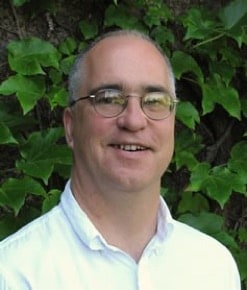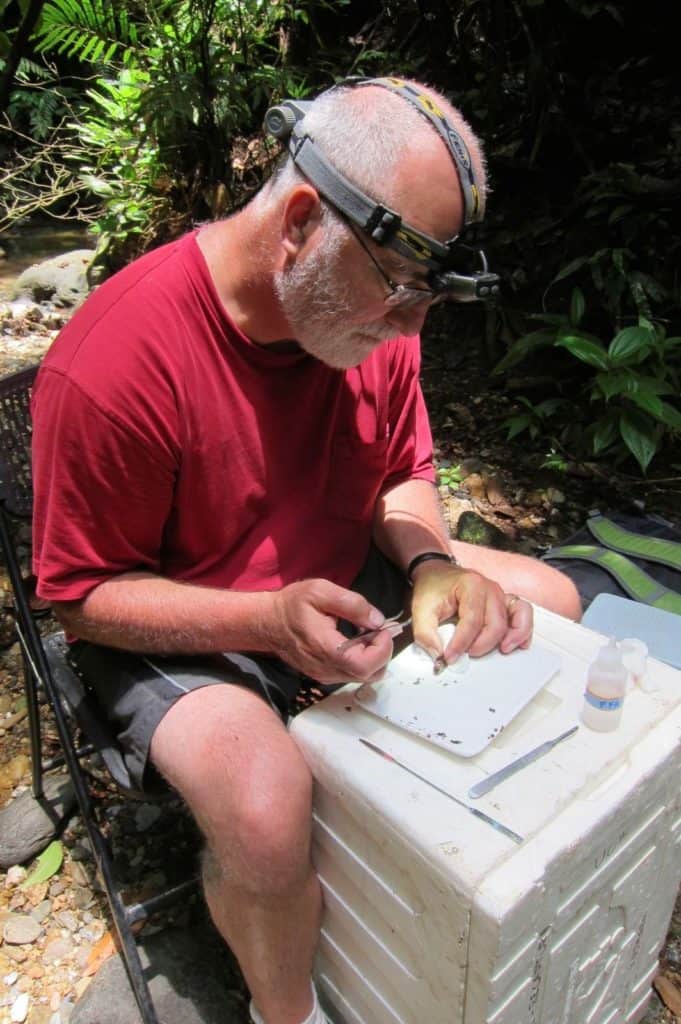Biology Professor Receives Fulbright Specialist Program Award to Teach in Uruguay
Trinity College Professor of Biology Kent D. Dunlap has received a Fulbright award through the Fulbright Specialist Program to teach in Uruguay. Although he has deferred travel to Uruguay until 2023 due to the COVID-19 pandemic, Dunlap taught virtually as part of a graduate-level course at the Universidad de la Republica in Montevideo during his sabbatical in the 2021-22 academic year.

A program of the U.S. Department of State, the Fulbright Specialist Program is a unique opportunity for U.S. academics and established professionals to engage in two- to six-week, project-based exchanges at host institutions across the globe. Dunlap has previously received two Fulbright U.S. Scholar Grants: one in 2009 to study electric fish in Uruguay, and one in 2019 to do research on fish brains in Portugal. The electric fish that Dunlap studies are native to Uruguay, and his fellowship there launched a long collaboration with a group of researchers. Together, they are planning a meeting in Portugal for later this summer.
For his remote instruction this year, Dunlap taught students in Uruguay about neurobiology and scientific writing. “I worked largely with individual students on their writing, so that worked out quite well. It was very gratifying,” he said. “The language of science is largely English, and students there have little opportunity to work with scientists who are native English speakers, so it was beneficial to them.”
Dunlap now plans to teach in person in Uruguay in May and June of 2023, which is winter in the southern hemisphere and will not interfere with his teaching at Trinity. “The course is on the neural basis of social behavior in animals,” he said. “I will be giving lectures on my area of expertise—how the production of new neurons in the brain contributes to social behavior. I’ll also be working with students on writing, largely on their individual projects like grant proposals, master’s theses, Ph.D. dissertations, and manuscripts to submit to science journals.” The professor has taught in Uruguay on two previous occasions and has found the experiences to be very satisfying. “The students were extremely motivated and tireless with their energy,” Dunlap said.

His work as part of the Fulbright Specialist Program is related directly to his teaching at Trinity. Dunlap said, “At Trinity, I teach an upper-level course on sensory biology and we do various writing exercises: writing about scientific material for the general audience, a research paper, and a mock research proposal as well. I believe writing skills are really important for scientists, but not just one kind of writing; it’s important to reach many different audiences.”
For Dunlap, this Fulbright teaching experience is a way to enhance his scholarship and his work with students at Trinity. “There are many international students at Trinity, and this program has made me more interested in working on how to teach scientific writing to students for whom English is not their native language,” he said.
As a member of the Trinity faculty for 24 years, Dunlap said he enjoys the benefits of being at a small liberal arts college in a city. “You can do both teaching and research here. The ability to be both a teacher and a scholar has been a great part of my work at Trinity,” he said. “The support the college has given me to teach and do research abroad has been great.”
To learn more about biology at Trinity College, click here.
